As the largest Russian energy holding fully aware of its responsibility to the government and society, RusHydro Group is focused on the development of socially responsible business, while pursuing a consistent policy of introducing sustainable development principles into its operational and management processes, keeping in line with Russian and international best practices. Sustainable development is an important value outlined in the Company’s strategic goals.
The Company adheres to the corporate social responsibility concept as defined by ISO 26000. According to the standard, a company is responsible for the impact of its decisions and operations on society and the environment and must act in a transparent and ethical way that:
One of RusHydro Group’s strategic goals is to ensure the reliable and safe operation of its facilities, taking into account the economic feasibility of funds allocated for mitigating possible risks and reducing potential damage.
The Company is committed to increasing the share of renewables in the country’s energy mix by means of commissioning new facilities and increasing the generation of clean energy, while also improving energy efficiency.
RusHydro Group’s another priority is the development of the regions where it operates. RusHydro facilitates the growth of welfare, creating new jobs, paying taxes, and delivering positive multiplier effects by developing energy infrastructure (connection of new consumers to power grids, water supply, etc.). The Group companies support education, culture, sports, and environmental protection and provide assistance to socially vulnerable population groups across their footprint.
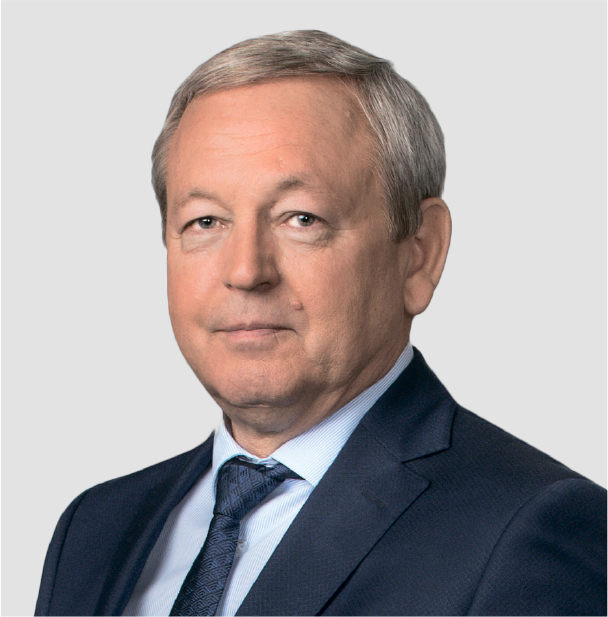
— The concept of "sustainable development", introduced in the last century, characterizes the harmonious, balanced, minimally conflicting progress of our entire civilization, individual countries or groups of them.
More
— The concept of "sustainable development", introduced in the last century, characterizes the harmonious, balanced, minimally conflicting progress of our entire civilization, individual countries or groups of them.
To ensure sustainable development, appropriate conditions must be created for the functioning of all subsystems of the economy, including the energy sector, the impact of which on the level of development of society and on the level of total anthropogenic impact on the environment is very significant.
In the energy sector, a key aspect of meeting the criteria for sustainable development is the maximum savings in primary non-renewable energy sources while meeting the energy needs of the modern economy and society, as well as minimizing the environmental impact along the entire energy production chain.
The Environmental policy of the RusHydro Group sets out KPI until 2025, including a reduction of direct and per unit greenhouse gas emissions, as well as an increase in the installed capacity of low-carbon generation.
RusHydro Group annually increases low-carbon electricity generation by introducing new and modernizing existing hydro-power facilities, efficient planning of water-energy regimes, as well as the gradual conversion of thermal power facilities to gas, thus reducing the anthropogenic impact on the environment.
By 2025, RusHydro Group plans to reduce greenhouse gas emissions by more than 6% as compared to the 2015 baseline.
An integrated approach to solving the problems facing the energy sector and implementing priority areas of activity makes it possible to ensure the sustainable development of the sector.
The responsibility for providing control, methodology support and regulation of RusHydro Group’s steady low-carbon development, as well as preserving cultural heritage sites and biological diversity is assigned to member of the Management Board, First Deputy General Director — Chief Engineer* [102−19].
Sustainable development activities are carried out by specialized units within the area of their functional responsibility [102−20]:
Operation of RusHydro’s different subdivisions and subsidiaries is coordinated at regular meetings of the working group on sustainable development to monitor the efficiency of implementation of key tasks in sustainable development for the period through to 2020 approved by RusHydro’s Order No. 614 of September 11, 2017.
Key sustainable development issues are reviewed at the meetings of the Board of Directors and the Company’s Management Board. The Committee on Reliability, Energy Efficiency and Innovation under RusHydro’s Board of Directors plays an important role in RusHydro’s sustainable development management and preliminarily reviews matters of long-term development of hydropower and energy based on other renewables (“RES”), as well as development of functional policies (technical, environmental, etc.), corporate standards in technical regulation, etc.
The Company has adopted a number of internal regulations outlining and governing the approach to sustainable development and corporate social responsibility (“CSR”).
Internal regulations
| CSR area | Internal regulations |
|---|---|
| Sustainable production |
|
| Procurement |
|
| Corporate ethics and anti-corruption |
|
| Environmental impact |
|
| Health and safety |
|
| Charity |
|
| Innovative development |
|
| Personnel management |
|
In 2019, PJSC RusHydro intensely participated in the implementation of a project by the Association “Hydropower of Russia”, targeting the development of an assessment system of operated hydropower facilities' compliance with the sustainable development criteria, taking into account the requirements of current Russian legislation regarding the analysis of existing methods. The project implementation will be resumed in 2020, with the assistance of the International Hydropower Association. [OS]
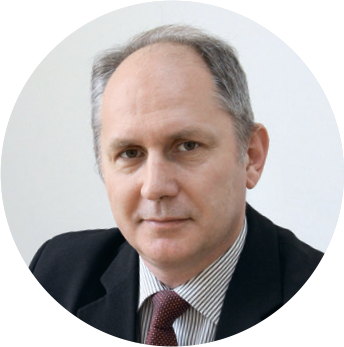
RusHydro Group has made an invaluable contribution to developing hydropower in Russia and to guaranteeing the country’s energy security. RusHydro is the undisputed leader among energy companies in Russia and is also one of the world’s largest organizations operating in the hydropower space.
The company places particular emphasis on developing the power industry in the Far East, a region with huge hydropower potential. If this potential is not harnessed, further economic and infrastructural development in this region of such significance to the Russian Federation would not be possible. RusHydro Group invests considerable funds in creating social infrastructure and implementing resource-saving and environmental technologies.
Naturally, RusHydro is a source of support and development for the industry’s science and education. It presents an exemplary corporate culture, but, above all, it embodies the hard work of a cohesive team of true professionals.
In 2015, the United Nations Member States adopted the 2030 Agenda for Sustainable Development (the “Agenda”), which set out 17 Sustainable Development Goals (SDGs) and 169 targets on the way to achieving them. The progress towards these goals and targets is monitored and expressed in quantifiable terms based on a set of global metrics. Member states follow the Agenda’s principles to draw up national targets and metrics that are based on global benchmarks but take into account local conditions.
At the same time, the SDGs cannot be achieved through the efforts of governments and public organizations alone, so the UN encourages businesses, especially large and transnational companies, to adopt sustainable practices and include sustainability information in their reporting cycle.
RusHydro Group is fully in support of the Agenda, consistently integrating the most relevant SDGs into its operations. In 2019, the Company revised the list of relevant SDGs and worked out a number of quantitative indicators that will be disclosed going forward, helping to track RusHydro Group’s contribution to the achievement of SDGs.
RusHydro’s quantitative metrics are based on UNCTAD’s Guidance on core indicators for entity reporting on contribution towards implementation of the Sustainable Development Goals*, as well as certain GRI Standards disclosures that are annually disclosed by the Company*. RusHydro did not aim to disclose the maximum possible number of indicators; instead, the Company determined the ones that bear the most relevance to its operations and ensure zero overlap when it comes to SDG achievement.
The Company shares ten principles on human rights, labor, anti-corruption, and the environment, and strives to ensure that the needs of the current generation will not compromise the opportunities of those who will come next. In 2017, RusHydro joined the UN Global Compact, the largest business initiative in sustainable development*.
In June 2018, RusHydro joined the Association “National Network of the Global Compact”, and Boris Bogush, Member of the Management Board, First Deputy General Director — Chief Engineer, was elected member of the Governing Board.
RusHydro Group’s contribution towards the achievement of SDGs in 2019 [EC] [OS]
| SDGs, targets | Relevant SDGs indicators | |
|---|---|---|
| Indicator | Disclosure | |
 1.2
1.2
|
GRI 202−1 Ratios of standard entry level wage by gender compared to local minimum wage | Depending on the region of operation, the entry level wage either exceeds the minimum wage 14-fold or at least equals it |
 3.8
3.8
|
С. 3.1. Expenditures on employee health and safety | RUB 2,464.7 mn |
| GRI 403−9 Occupational Health and Safety | 26 accidents to RusHydro’s staff that resulted in 28 injuries, including one fatality. The accidents caused injuries to two managers (men), four specialists (women), and 20 workers (men) | |
| GRI 403−10 Work-related ill health | Three cases of work-related ill health | |
| GRI 203−2 Infrastructure investments and services supported (partially) | Healthcare investments of RUB 17.3 mn | |
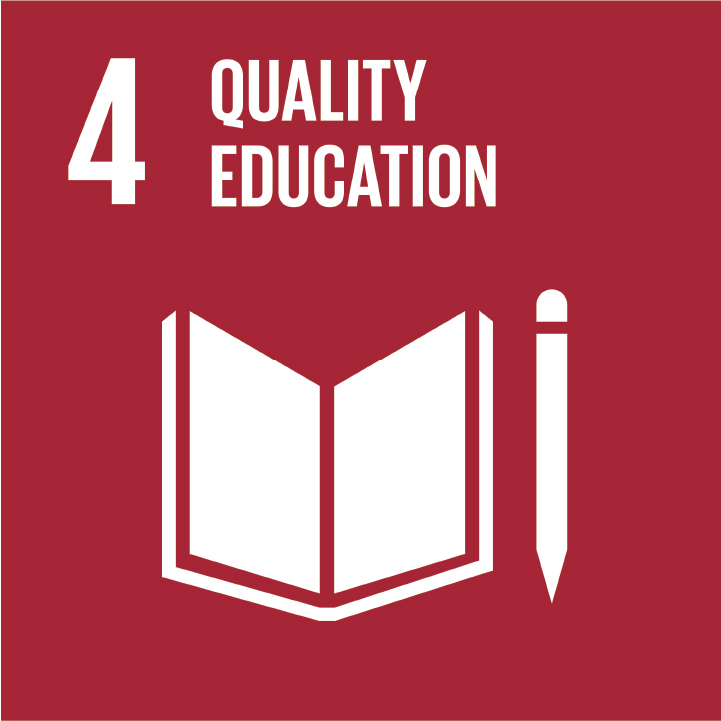 4.3
4.3
|
С. 2.2. Expenditure on training per year per employee | RUB 3.7 thousand |
| GRI 404−1 Average hours of training per year per employee |
Management: 102 hours White-collar employees: 56 hours Blue-collar employees: 50 hours |
|
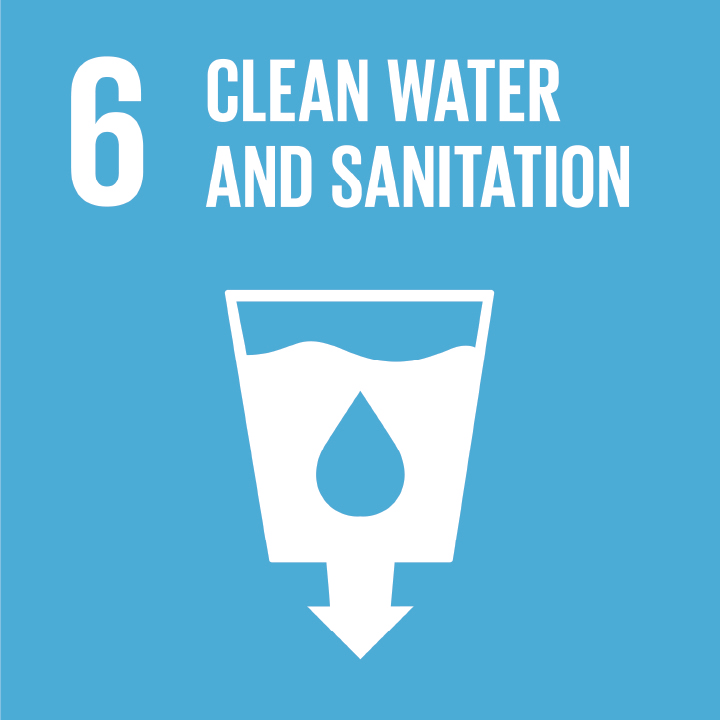 6.3, 6.4
6.3, 6.4
|
В.1.1. Water recycling and reuse |
4.5 bn m3 recycled water supply
21.2 bn m3 reused water supply |
| В.1.2. Water use efficiency | The ratio between water withdrawal and net added value is 3.9 thousand m3/ RUB mn | |
| В.1.3. Water stress | No water is withdrawn in water-scarce areas | |
| GRI 303−4 Water discharge (by treatment type) |
Waste water discharge into water bodies —
594.9 mn m3,
including:
|
|
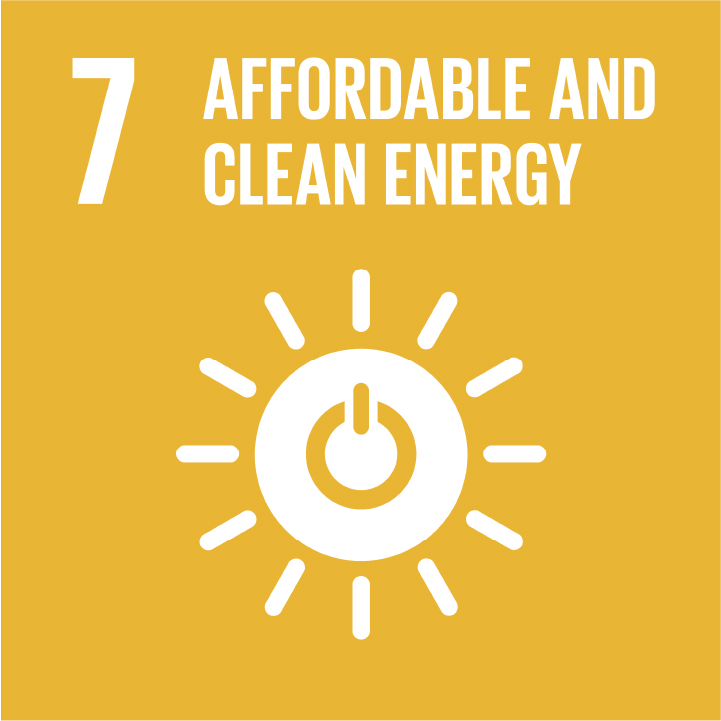 7.1, 7.2, 7. b
7.1, 7.2, 7. b
|
А.3.1. Green investment | 0.5% of consolidated revenue |
| GRI EU1 Installed capacity |
39,683 MW For a breakdown by primary energy source and by regulatory regime, see Key production assets |
|
| GRI EU2 Net energy output |
142.8 bn kWh
of electricity 30.0 mn Gcal of heat For a breakdown by energy source and by regulatory regime, see Electricity and heat generation |
|
| GRI EU23 Programs, including those in partnership with government, to improve or maintain access to electricity and customer support services | The Group’s businesses were involved in implementing the Target Model for Utility Connection to Electrical Grids approved by the Russian Government’s Decree No. 147-r On target models for simplifying business procedures and enhancing investment appeal of the Russian regions dated January 31, 2017 | |
| GRI EU28 Power outage frequency (SAIFI) |
0.74 For a breakdown by subsidiary, see Accident rate at RusHydro Group’s facilities |
|
| GRI EU29 Average power outage duration (SAIDI) |
1.03 h For a breakdown by subsidiary, see Accident rate at RusHydro Group’s facilities |
|
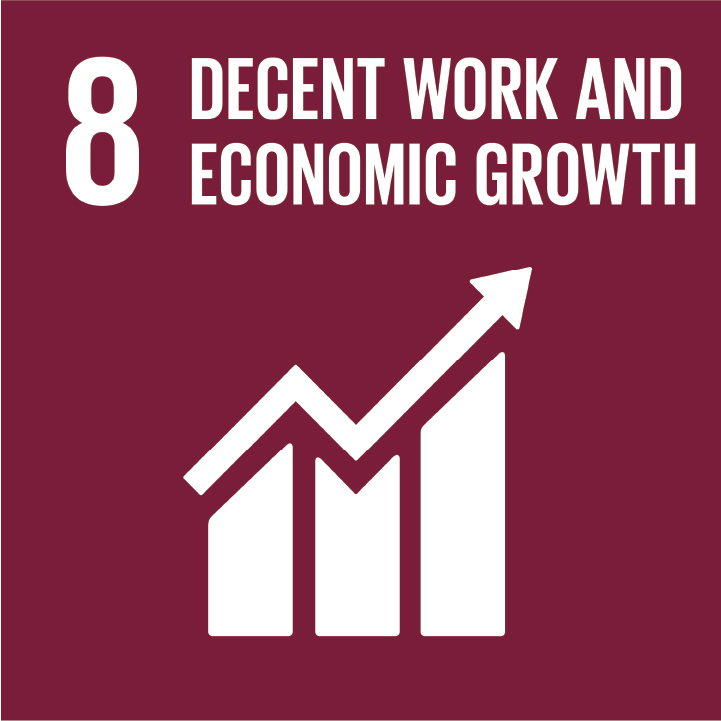 8.2, 8.8
8.2, 8.8
|
А.1.1. Revenue | RUB 406.6 bn |
| С. 4.1. Percentage of employees covered by collective agreements | 96% | |
| GRI 401−1 New employee hires and employee turnover |
13,173 employees; For turnover by age and gender, see Recruitment |
|
| GRI 401−2 Benefits provided to fulltime employees that are not provided to temporary or part-time employees |
|
|
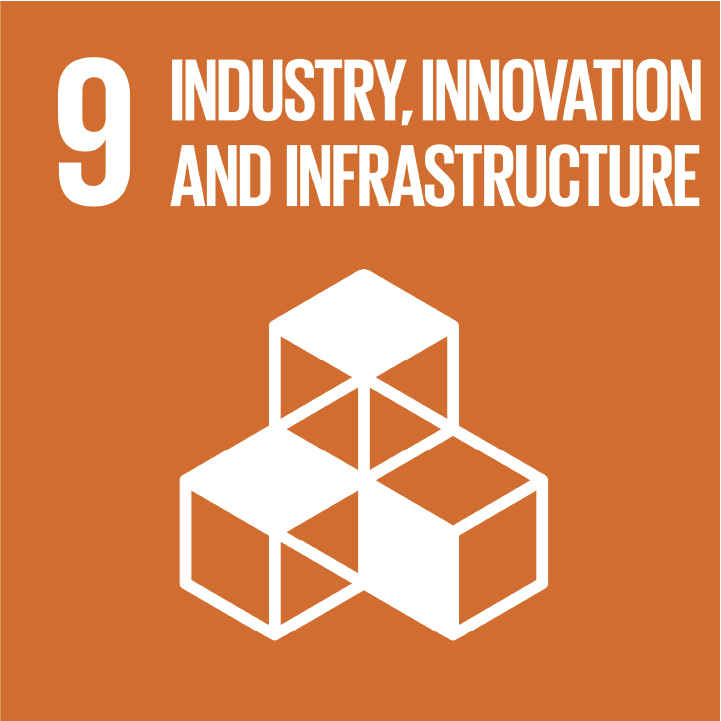 9.3, 9.4, 9.5, 9. b
9.3, 9.4, 9.5, 9. b
|
А.1.2. Added value | RUB 190.4 bn* |
| А.3.3. Total expenditures on research and development | RUB 2.8 bn | |
| А.4.1. Percentage of local procurement | 99.9% | |
| GRI 203−2 Infrastructure investments and services supported (partially) | RusHydro Group handed over 15 socially significant facilities to Russian regions; for the results of construction activities under key investment projects, see Construction and modernization of production facilities | |
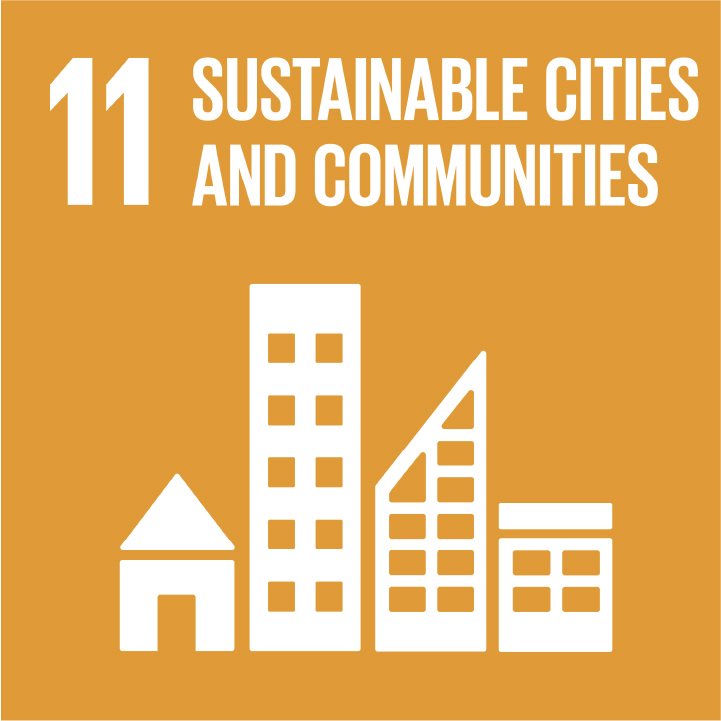 11. a
11. a
|
С. 2.3. Employee wages and benefits with breakdown by employment type and gender |
The average salary stood at RUB 78,575
The benefits package that includes private pension plans, VHI, insurance against accidents and diseases, and support in housing conditions improvement amounted to RUB 31,667 There is no statistics on wages and benefits by labor contract type, employment type, or gender |
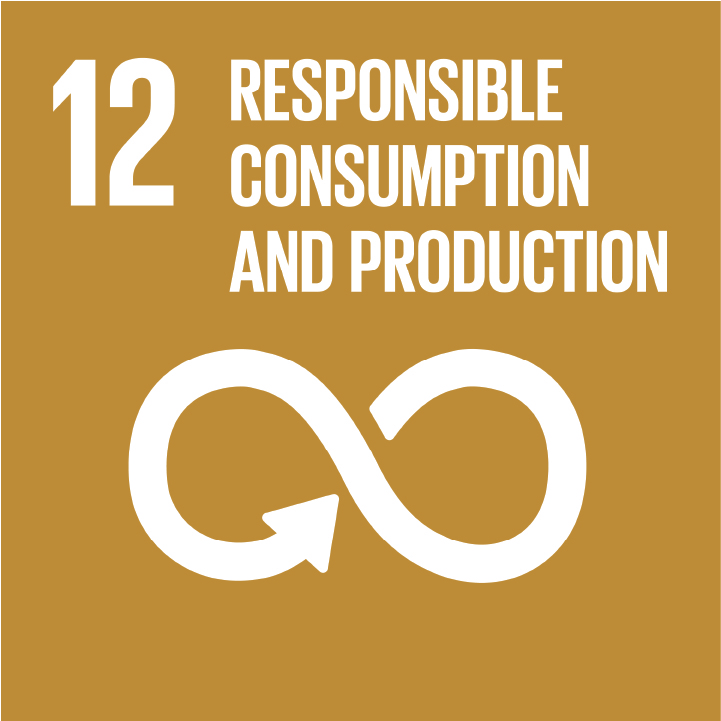 12.5, 12.6
12.5, 12.6
|
В.2.1. Reduction of waste generation | The aggregate waste generated by RusHydro Group’s power facilities totaled 23.8 mn tonnes, down 19.6% y-o-y |
| В.2.2. Waste reused, re-manufactured and recycled | Accumulated waste is collected by specialized contractors duly licensed to collect, transport and treat such waste. | |
| GRI 302−4 Reduction of energy consumption |
877 thousand m3 in gas savings 123 tonnes of natural fuel in diesel fuel savings 46,535 tonnes of equivalent fuel in savings of various fuel types 19,991 Gcal in heat savings 74,610 thousand kWh in electricity savings |
|
| GRI EU12 Transmission and distribution losses as a percentage of total energy | 9.8% | |
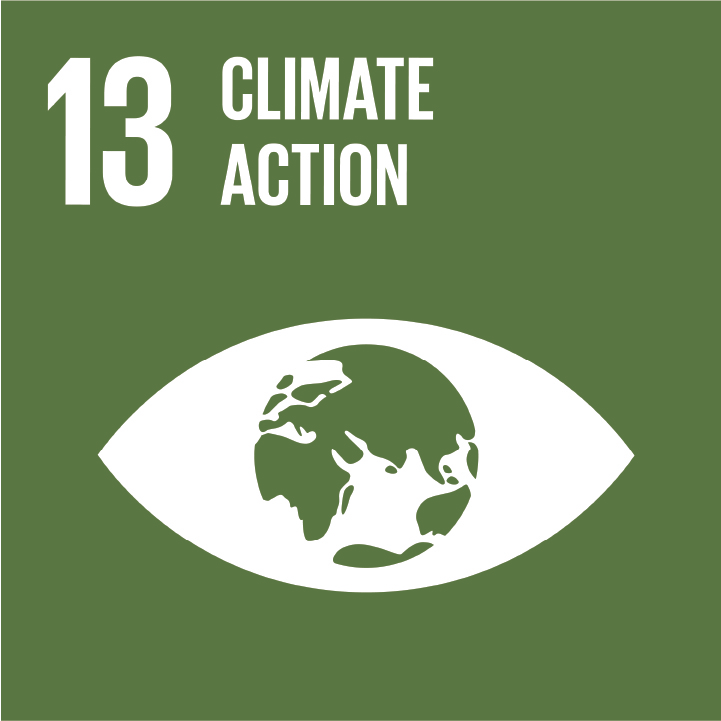 13.2
13.2
|
В.3.1. Scope 1 GHG emissions | 35.3 mn tonnes |
| GRI 305−7 Nitrogen oxides (NOX), sulfur oxides (SOX) and other significant air emissions | 231.7 thousand tonnes | |
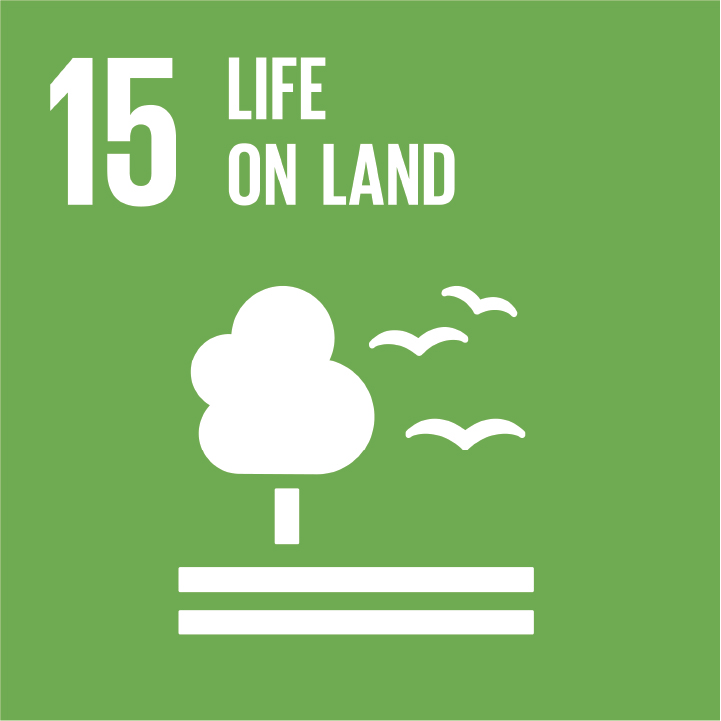 15.1, 15.5
15.1, 15.5
|
GRI 304−3 Habitats protected or restored | Rehabilitated area — 4.0 ha |
| GRI 306−5 Water bodies affected by water discharges and/or runof |
44 bodies For a breakdown by water body size, see Biodiversity conservation |
|
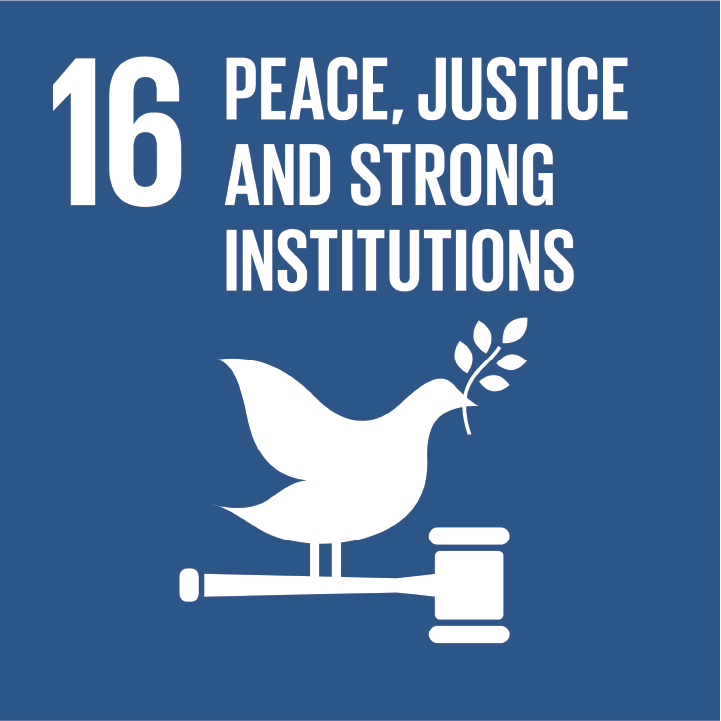 16.5
16.5
|
D.2.2. Average hours of training on anti-corruption issues per year per employee |
653 employees
underwent training No records are kept on the length (in hours) of anti-corruption training; for a breakdown by region and employee share, see Anti-corruption efforts |
| GRI 205−3 Confirmed incidents of corruption and actions taken | No corruption cases were confirmed at RusHydro Group during the reporting period | |
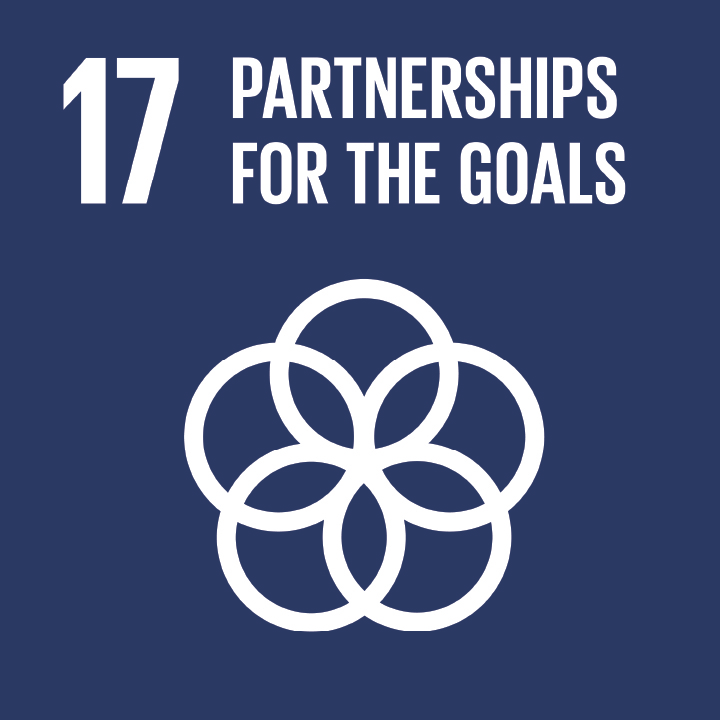 17.1, 17.17
17.1, 17.17
|
А.2.1. Taxes and other payments to the Government |
RUB 82.1 bn For a breakdown by budget level and for the structure, see Tax payments |
| А.3.2. Community investment | 0.4% of consolidated revenue | |
| GRI 203−1 Significant indirect economic impacts | RUB 1.48 bn | |
A comprehensive approach to addressing RusHydro Group’s sustainable development objectives ensures the most efficient transition to low-carbon development with minimal environmental impact.
The focus on a low-carbon economy above all relies on the development of renewable sources of energy. Using RES is a top priority for RusHydro Group, which keeps ramping up installed capacities by building new facilities and commissioning new generation units.
RusHydro, which is the operator of most of the country’s HPPs, was among the first in Russia to start developing projects relying on geothermal, solar and wind power generation. One of RusHydro Group’s objectives for 2016−2020 with an outlook until 2025 is to improve energy efficiency by using renewable energy sources. Most of the projects are implemented in isolated energy hubs of the Far Eastern Federal District outside of the Unified Energy System.
RusHydro Group’s clean energy structure includes smaller HPPs with a capacity of up to 25 MW, geothermal, wind, and solar power plants.
Large HPPs, which make up 74% of RusHydro Group’s total installed capacity, are also classified as sources of power generation with low per unit emissions of greenhouse gases.
Plans to finance construction of generation facilities for a low-carbon economy
| Project | Start year | End year | Estimated total cost of investment project, RUB mn | Planned investments in 2020−2025 in forecast prices, RUB mn |
|---|---|---|---|---|
| Ust-Srednekanskaya HPP | 1991 | 2023 | 76,927.3 | 23,369.4 |
| Solar generation unit at Nizhne-Bureyskaya HPP | 2019 | 2020 | 155.7 | 155.5 |
| Ust-Dzhegutinskaya SHPP | 2012 | 2020 | 1,684.2 | 433.8 |
| Barsuchkovskaya SHPP | 2012 | 2020 | 1,551.3 | 495.0 |
| Krasnogorskaya SHPP-1 | 2017 | 2021 | 7,310.9 | 6,758.0 |
| Krasnogorskaya SHPP-2 | 2017 | 2022 | 7,454.3 | 6,887.6 |
| Verkhnebalkarskaya SHPP | 2011 | 2020 | 3,706.1 | 483.9 |
| Photovoltaic power system (Vladivostok, Primorye Territory, Russky Island) | 2020 | 2020 | 5.0 | 5.0 |
| Development and testing of a hybrid container-type energy storage system as part of a distributed network with renewable energy sources (Vladivostok, Primorye Territory, Russky Island) | 2020 | 2020 | 18.0 | 18.0 |
| Construction of a 0.3 MW wind turbine in Ust-Kamchatsk | 2019 | 2021 | 185.3 | 150.8 |
| Construction of a 900 kW wind power plant in Tiksi, Bulunsky District | 2017 | 2020 | 290.0 | 12.7 |
| Construction of a 3,000 kW diesel power plant with an energy storage unit for the wind diesel power station in Tiksi, Bulunsky District | 2018 | 2021 | 1,458.7 | 704.4 |
Since 2012, RusHydro Group has commissioned 19 solar power plants with a total capacity of 1.6 MW and four wind power plants with a total capacity of 3.6 MW in the Far Eastern Federal District.
Given the local specifics, none of the projects is standard by design, the 1 MW northernmost SPP in Batagay is not an exception. Our R&D specialists have designed prototype wind diesel and solar diesel power stations and tested a range of equipment, including energy storage units, all to be used in isolated energy hubs of the Far Eastern Federal District.
In 2019, RusHydro Group continued working on its project to erect a wind-diesel power plant in Tiksi, Republic of Sakha (Yakutia), including a new 3 MW diesel power plant, a wind turbine, and an energy storage system. The wind diesel power plant has a total capacity of 3.9 MW. In 2019, the project’s second stage was underway to construct a modular diesel power plant with energy storage. Design, delivery of power generation equipment, and construction of the foundation for the power plant were all successfully completed.
As part of a memorandum of understanding signed in 2017 with Japanese companies on the wind power project in Ust-Kamchatsk, Kamchatka Territory, the design phase was competed for the erection of the fourth cold climate resistant wind turbine from Komai with a single capacity of 300 kW. The automated process control system was also upgraded.
The construction of a 1.27 MW solar power plant at the site of Nizhne-Bureyskaya HPP is in the completion phase. The commissioning is scheduled for 2020. The project will help pilot test the technology for using RES at hydraulic structures as a way to reduce own consumption costs for HPPs.
In line with action plan No. 7456p-P9 dated August 15, 2019 to modernize diesel (coal and fuel oil) power generation in remote and isolated areas approved by Dmitry Kozak, Deputy Chairman of the Russian Government, work was initiated to organize contests for selecting RES-based upgrade projects in RusHydro Group using energy service agreements. The RES facilities covered by seven pilot modernization projects in the Republic of Sakha (Yakutia) have a planned capacity of 3.15 MW (to be updated after the competitive process is over).
Smaller HPP projects are implemented and supported by many countries. Their benefits include a lower capital intensity, as compared to large HPPs, and availability of multiple suitable dam sites and watercourses.
In Russia, smaller HPPs have a potential of around 7,000 MW.
In 2019, the Government of the Russian Federation decided to extend the framework for RES support beyond 2024, with the single capacity of SHPPs growing to 50 MW and investments of RUB 30 bn allocated to smaller HPP projects. In 2020, the Government is expected to draft a list of regulations to support RES beyond 2024.
In 2019, RusHydro’s Management
Board approved the smaller HPP
development program for
Planned schedule for project commissioning as part of the existing RES support framework until 2024, MW
| Project | 2020 | 2021 | 2022 | Total |
|---|---|---|---|---|
| Barsuchkovskaya SHPP | 5.3 | - | - | 5.3 |
| Verkhnebalkarskaya SHPP | 10 | - | - | 10 |
| Krasnogorskaya SHPP-1 and SHPP-1 | - | 24.9 | 24.9 | 49.8 |
| Ust-Dzhegutinskaya SHPP | 5.6 | - | - | 5.6 |
| Total | 20.9 | 24.9 | 24.9 | 70.7 |
Pursuant to decisions adopted by the Management Board in September 2019, RusHydro launched the first network of electric vehicle (EV) fast charging stations in the Far East. The EV charging network project is in line with the instructions issued by the President of the Russian Federation in his May 2018 Decree, and with the Russian Government’s instructions on the development of the energy infrastructure in the Far East.
Ten charging stations were installed in Vladivostok, Ussuriysk and Artem of the Primorye Territory (the leading region by number of electric vehicles), as well as in Blagoveshchensk of the Amur Region. For the convenience of EV owners, charging stations are located in the parking lots of supermarkets and shopping and entertainment centers, near the offices of RusHydro Group’s single settlement centers, and at filling stations.
RusHydro’s EV charging stations are hardware and software units powered by the latest technology such as remote process control, mobile application, and payment system. RusHydro is the first provider in Russia offering a comprehensive fast charging service for mass market EVs, which enables a partial battery top-up in just a few minutes and a full charge cycle of under 30 minutes.
Since the launch, RusHydro’s EV charging stations have provided about 10,000 charging sessions. The aggregate amount of charge has allowed electric vehicles to travel over 300,000 km in total, saving more than 3,000 liters of hydrocarbon fuel,* which translates into some 70,000 kg savings in CO2 emissions into the air.
On an annual basis, electric cars charged at RusHydro’s operating charging stations will be able to travel more than 500,000 km annually, saving more than 5,000 liters of hydrocarbon fuel.The stations support a range of charging connectors, including: Japanese standard (DC) of 50 kW, European standard (DC) of 50 kW, and connector Type 1 / Type 2 (AC), 22 kW. A single station can charge two EVs simultaneously.
Strong demand and extensive positive feedback from our clients, who would like to see the charging network expand going forward, confirmed the popularity of the new service. To this end, in December 2019 RusHydro’s Management Board resolved to further develop this high-tech line of business and approved the roadmap on expanding RusHydro’s EV charging network in the Primorye Territory, Amur and Sakhalin regions, Khabarovsk Territory, and other regions of Russia. In line with the roadmap, we are looking into potential locations of charging stations to enable EV travel between the key cities of the Far East and to provide people with access to the seashore during the summer vacation period.
Ratification of the Paris Agreement on climate change
One of the 2019 milestones was Russia’s ratification of the Paris Agreement on climate.
The Paris Agreement was adopted in 2015 by 195 participants of the Paris forum. At that time, the parties agreed that they needed to mitigate global warming and hold the increase in the global average temperature by 2100 to well below 2 °C above pre-industrial levels (19th century). The document also aims to limit the average temperature increase to 1.5°С. In 2015, scientists said that a larger temperature increase could lead to irreversible changes in the earth’s ecosystem.
The Paris Agreement does not require the signatories to abandon the burning of fossil fuels (oil, gas and coal) for industrial purposes. However, it does require the countries to work on emission reduction and treatment, upgrade existing facilities with improved treatment systems, and adapt industrial production to climate change developments.
Back in late 2015, RusHydro supported an initiative to unite the efforts in Russia to reduce the impact on the environment and prevent climate change, signing the Statement of the Russian Business on the Negotiation Process and Adoption of a New Climate Agreement at the 21st session of the Conference of the Parties to the United Nations Framework Convention on Climate Change (UNFCCC).
Since 2015, RusHydro has been a member of the Climate Partnership of Russia, which seeks to unite the efforts of businesses in the interests of transition to environmentally friendly technologies.
The Company annually reports on its greenhouse gas emissions under the Carbon Disclosure Project (CDP). The key objective of the CDP is to promote solutions that contribute to improvements in climate change by raising awareness of businesses, policy makers, and investors.
In 2019, RusHydro also continued its work, together with EuroSibEnergo, within the working group on developing a methodological approach to understanding global climate change processes in terms of greenhouse gas emissions from the surface of HPP freshwater reservoirs and evaluating their absorbing capacity.
RusHydro Group strives to balance the interests of all the stakeholders. The Company keeps in touch with its stakeholders and systematizes and analyzes their requests, making sure that any relevant information is disclosed in full and on time. This approach allows for a timely response to probable risks associated with stakeholder relations.
In building a framework for successful relations with stakeholders, RusHydro Group follows four fundamental principles of the AA1000 [102−43] Series of Standards:
Given that each stakeholder group has and will continue to have a major impact on the Company’s business, taking their interests into consideration when operating and planning across various timeframes is crucial for RusHydro Group’s sustainable development.
In 2019, stakeholder relations were in line with Order No. 949 dated December 10, 2018 by the Chairman of the Management Board — General Director of RusHydro, which details the schedule, ways of interaction, and actions planned for stakeholders in 2019. [102−43]
More details on actions adopted for relations with stakeholder groups are available in the following documents approved by the Company’s executive documentation:
Based on the 2019 performance, RusHydro issued a report on implementation of actions under the approved schedule.
Public hearings and stakeholders' opinions
When drafting its annual reports, RusHydro Group strives to ensure that the information it provides meets expectations of the stakeholders. In line with this principle, the Company holds annual public hearings to discuss the forthcoming report.
In April 2020, the draft 2019 Annual Report of RusHydro Group was presented at the public hearings attended by representatives of the Company, its partners in the energy sector, subsidiaries, environmental and public entities, trade unions, universities, local authorities, media, as well as consultants and auditors.
At the hearings, the stakeholders made proposals regarding information to be disclosed in the report.
In addition, this report publishes the information (marked by special symbols) proposed for disclosure in previous reporting campaigns (including tendering results and public reporting ratings) or identified by surveying stakeholders as part of determining material topics of the 2019 Annual Report.
EС — taking into account recommendations of the expert community;
OS — taking into account recommendations of stakeholders other than the expert community.

RusHydro Group’s stakeholder relations in 2019 [102−21] [102−31] [102−33] [102−43] [102−44] [EC]
| Key mechanisms | Responses to requests and results of stakeholder relations in 2019 |
|---|---|
| 1. Shareholders and investors | |
| Key interests: dividend payouts, economic efficiency, business resilience, business process transparency | |
|
The interaction focused on discussing RusHydro Group’s strategic priorities and plans, including those related to the updated dividend policy, inclusion of the four Far Eastern projects in the TPP modernization program with a guaranteed rate of return, implementation of value growth initiatives, management efforts aimed at improving operational efficiency, and plans for asset modernization.
For more information, see the
Shareholder and investor relations
section
|
| 2. Customers and consumers | |
| Key interests: reliable power supply, improved quality of products and services, high standards of service | |
|
Agreements were implemented related to regional energy development, ensuring sustainable power and heat supply to consumers, as well as social and economic activities. For more information, see the
Consumer interaction
section
In 2019, the majority of requests received through the Trust Line were about sales (36%) and procurement (34%). For more information on the Line of Trust,
see the
Providing for transparency and
availability of information section
In line with its strategy to improve customer experience, RusHydro Group has been launching single settlement and information centers. The centers provide clients with a single payment document, which reflects charges for electricity, heating, cold water supply, sewage, removal of solid household waste and other utility services. As at the end of 2019, 45 centers were operational, including nine centers that opened during the reporting period. This project, along with the introduction of single payment documents, translates into a 20−30% increase in utility payment collection practice. Within the regions of their operation, companies of ESC RusHydro Subgroup provide services to about 60% of clients through internal and external interactive channels. Customers of ESC RusHydro Subgroup are actively exploring alternative ways of getting in touch with sales units, including through the Contact Center, which operates remotely. Consumers have the opportunity to ask a question directly to the operator or use the voice service powered by speech recognition and synthesis technology. Most of the inquiries focus on reporting utility meter readings (70%), while the second most popular area of interest is amounts due, incurred and recalculated under the client’s personal account (15%) and requests for information are the third most popular reason for contact (5%). Clients that use RusHydro’s EV charging network can benefit from a dedicated website (charge.rushydro.ru) with a detailed description of the project, charging instructions for electric cars, prices, answers to frequently asked questions and other useful information. Technical assistance is provided through the telephone support line accessible at 8−800−222−18−32 and a WhatsApp group where RusHydro experts are available online to provide assistance. |
| 3. Business partners, suppliers and contractors | |
| Key interests: fair competition and responsible market behavior, transparent operations, including procurement | |
|
In 2019, RusHydro was a partner of the 16th Krasnoyarsk Economic Forum, "Arctic: Territory of Dialogue" 5th International Arctic Forum, Eastern Economic Forum, and was actively engaged in the Russian Energy Week International Forum (REW 2019), Second Russian-Chinese Energy Business Forum, and the St. Petersburg International Economic Forum. RusHydro Group signed several agreements with its partners, including:
For more information on the implementation
of bidding procedures, see the
Procurement section
|
| 4. Environmental organizations | |
| Key interests: environmental protection | |
|
In 2019, RusHydro Group supported 19 specially protected areas across the regions of its operation. The Company’s donations help the areas implement a wide range of environmental measures aimed primarily at biodiversity conservation and environmental awareness raising for the younger generation, as well as actions that ensure regulation and sustainable use of biological resources important for biodiversity conservation; and assistance in protecting ecosystems and natural habitats of species maintaining viable populations in natural conditions. As part of the Ecological Paths project, seven tourist trails were laid out in 2019 in the Republic of North Ossetia — Alania, Perm and Stavropol territories, Amur, Volgograd, Saratov and Samara regions, with a total of 30 nature trails operating in 15 regions of RusHydro’s operation as of date (as well as in Karachay-Cherkessia, Chuvashia, Kabardino-Balkaria, Yaroslavl, Novosibirsk, Moscow and Nizhny Novgorod Regions). PJSC RusHydro takes part in activities of the Ministry of Natural Resources working group, which addresses entrepreneurship and biodiversity preservation issues. Thus, Company representatives inform the participants of meetings on the efforts made to preserve the biodiversity. One of the working group’s objectives is to establish methodological approaches to preserving the biodiversity. The said initiative will be implemented together with leading academic institutions. [OS] For more information, see the
Environmental protection
section
|
| 5. Employees and trade unions | |
| Key interests: professional and career development, safe working conditions, remuneration | |
|
In 2019, RusHydro Group conducted more than 56,300 training courses while also holding regular professional skills competitions and providing career guidance. RusHydro Group provides voluntary health insurance and non-government pension insurance plans. Employees receive support as part of existing collective bargaining agreements and internal documents. For more information, see the
Ensuring good working conditions section
Employees have access to a dedicated intranet platform (portal.rushydro.ru), which publishes Group-wide news, covers developments at RusHydro’s branches and subsidiaries, announces essential corporate events and actions, and posts vacancies and information on new appointments. In 2019, 12 issues of a corporate newsletter were published with a circulation of 11,000 copies, distributed across branches and subsidiaries of RusHydro Group. Most of RusHydro Group’s companies have trade unions in place, with a total of 34,239 members in 2019 (49% of the total headcount). Interaction with trade unions in branches and subsidiaries runs as follows:
|
| 6. Professional industry associations and expert community | |
| Key interests: energy science development, development of innovative technologies, partnership prospects, transparent operations | |
|
RusHydro Group participates in committees and working groups of a number of non-profit partnerships and international organizations, including:
For more information on forms of participation in non-profit organizations, see
Appendix No. 3
|
| 7. Federal and local executive authorities | |
| Key interests: ensuring reliable and uninterrupted power supply and heat supply, tax revenues, development of regions of operation, improvement of the regulatory framework for energy, control over investment program implementation and financial and business operations | |
|
In 2019, the Company had effective agreements with the Russia’s Ministry of Civil Defence, Emergencies and Disaster Relief, and the Federal Fishery Agency. RusHydro worked with committees of the Federal Assembly of the Russian Federation on matters related to the Company’s interests. Representatives of the Company participated in all significant events (parliamentary hearings, roundtables, emergency response sessions, meetings) organized by the executive and legislative authorities. In 2019, RusHydro had effective agreements and memoranda signed with the authorities of the following regions and municipal entities: Republic of Dagestan, Karachay-Cherkess Republic, Republic of Sakha (Yakutia), Republic of Tatarstan, Republic of Khakassia, Kamchatka Territory, Primorsky Krai, Amur Region, Volgograd Region, Magadan Region, Moscow Region, Chukotka Autonomous Area, Artem Urban District, Vladivostok Urban District, and Yakutsk Urban District. RusHydro developed the program to develop the energy system in the Far Eastern Federal District with a view to accelerating local economic growth. For more information, see the
Program to develop the energy system in the Far Eastern Federal District with a view to accelerating local economic growth section
Together with the Government of the Sakhalin Region, the Company established the Program of Stable Power Grid Operation in the Sakhalin Region, approved by the Ministry of Energy. For more information, see the
Accident rate at RusHydro Group’s facilities
section
Also in 2019, the management of RusHydro participated in commissions and working groups under the Government of the Russian Federation established for the development of the energy sector and social and economic development of Russian regions. Upon review by the Government Commission on the Development of the Electric Power Industry on May 29, 2019, the list of thermal power plants to be modernized (rehabilitated) or constructed in the WECM non-price zones was approved by Order of the Russian Government No. 1544-r dated July 15, 2019. A number of key issues related to the development of the energy sector in the Republic of Dagestan were discussed by the working group on the development of hydropower generating facilities, ensuring safety and effective operation of hydraulic facilities, which includes representatives of the Government of the Republic of Dagestan and RusHydro. [OS] |
| 8. Regulators and infrastructure organizations | |
| Key interests: compliance with Russian and international laws | |
|
The Company regularly discloses information in accordance with the requirements of the Bank of Russia and other regulators. RusHydro Group is actively involved in policy-making in the industry. The main achievement of RusHydro Group’s engagement in legislative improvement efforts in 2019 was the adoption of several regulations which set forth:
In 2019, PJSC RusHydro continued developing the national standardization system by ensuring operation of the specialized subcommittee — Hydropower Plants (hereinafter, SC-4) of the Technical Committee 016 “Power Sector”. The National Standardization Program, approved by Rosstandart based on the propositions of SC-4 (NSP 2015−2019), includes nine national standards initiated by SC-4. In late 2019, by Order of Rosstandart No. 1339-st dated December 4, 2019, the national standard (GOST R) “Instrumentation systems and equipment. Manufacturing conditions. Norms and requirements” (executed by the Branch JSC Institute Hydroproject — NIIES). In 2016−2019, the total number of GOST R national standards initiated by SC-4 and approved by Rosstandart amounted to 4. [OS] |
| 9. Educational institutions | |
| Key interests: targeted training programs, energy science development, development of innovative technologies, including those which reduce the environmental impact | |
|
Implementation of From School to Workplace, a program of advanced human resource development:
Two engineering centers dedicated to thermal power generation and wind power competencies have been established at the Far Eastern Federal University. For more information, see the
Ensuring good working conditions section
|
| 10. Local communities and regions of presence | |
| Key interests: local development | |
|
RusHydro Group builds and commissions energy facilities that help create new jobs. In 2019, 1,569 new jobs were provided, mainly in the Far Eastern Federal District. In 2019, under the Charity and Sponsorship Program more than 300 charitable projects were implemented in the regions of RusHydro Group operation, providing support in the following key areas: education, environment, health care, sports, culture, support of social institutions, charitable foundations, non-profit organizations, low-income and vulnerable citizens. The Company also supported a number of state-run projects of public importance. In addition, RusHydro subsidiaries implemented more than 320 charity projects in 2019. For more information, see the
Social
initiatives and contribution to the growth of local communities section
|
| 11. Media | |
| Key interests: receiving full reliable information on the Company’s operations, quick informed responses to media inquiries | |
|
As a result of interaction with the mass media, publications mentioning RusHydro Group totaled over 76,000 in 2019, with PJSC RusHydro mentioned 36,600 times. More than 15,000 items were published in federal outlets, while 258 pieces were broadcast on TV and radio. RusHydro has official accounts in three social networks: VKontakte, Facebook and Instagram with over 26,000 followers in total. The Company’s corporate website (www.rushydro.ru), which is open to all Internet users and contains information on all lines of business of RusHydro Group, attracted 533,000 unique visitors in 2019. |
| 12. Public social and charitable organizations | |
| Key interests: support for social activities and securing financial assistance, volunteers' assistance | |
|
Regular meetings were held with charitable foundations and non-governmental organizations. At the request of charitable foundations and organizations, the Company conducted a screening, upon which it decided on feasibility of the charitable assistance to be provided within the budget of the RusHydro’s Charity and Sponsorship Program and in accordance with the Regulations on the Organization of Management of Charitable and Sponsorship Activities of RusHydro Group and the Charity and Sponsorship Policy. The Company rendered targeted aid to those in need through charitable organizations upon receiving formal requests and supporting documents. For more information, see the
Charity and
social projects section
In cooperation with charitable foundations, volunteering campaigns were arranged to help the disadvantaged. For more information, see the
Corporate
culture and volunteering section
|